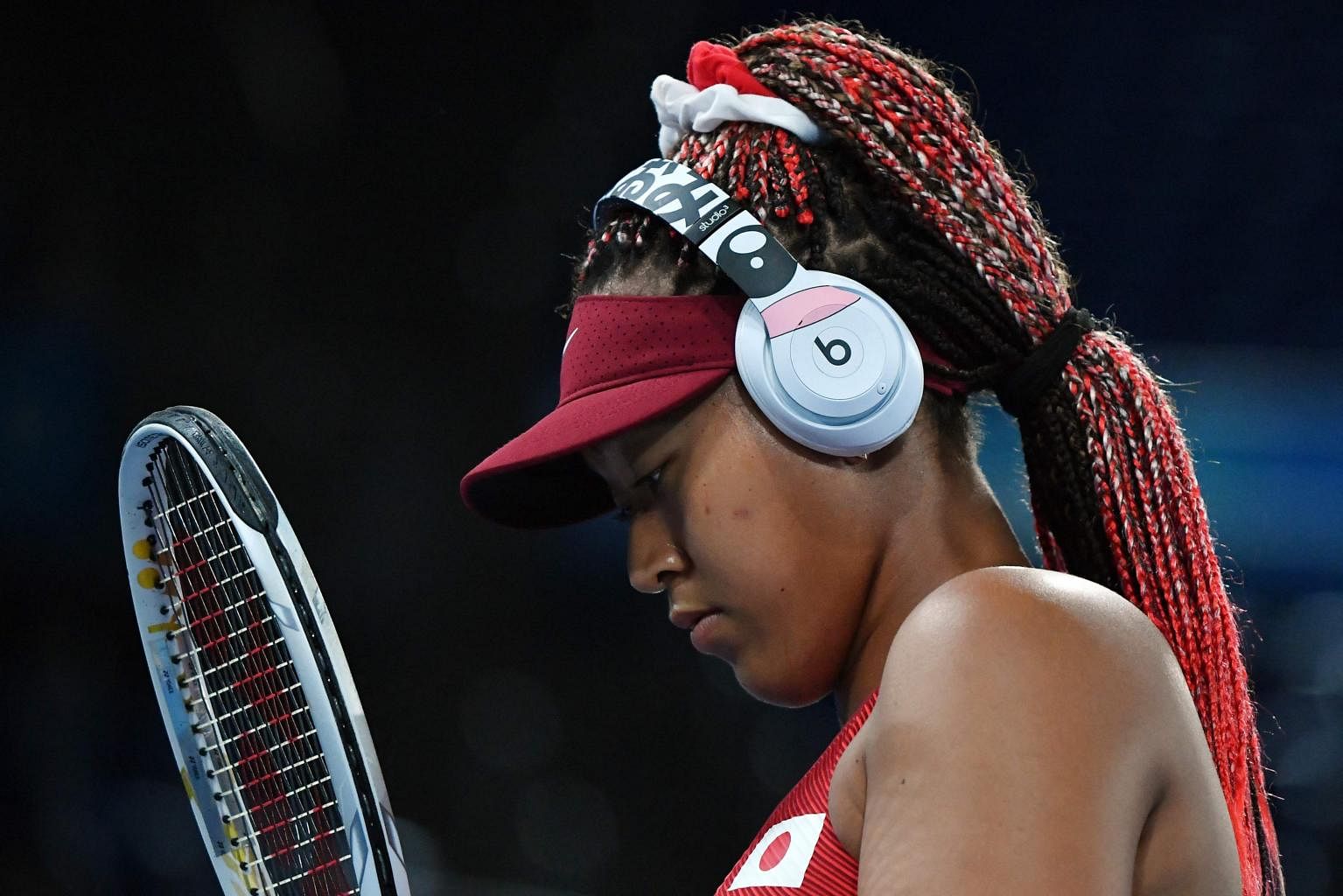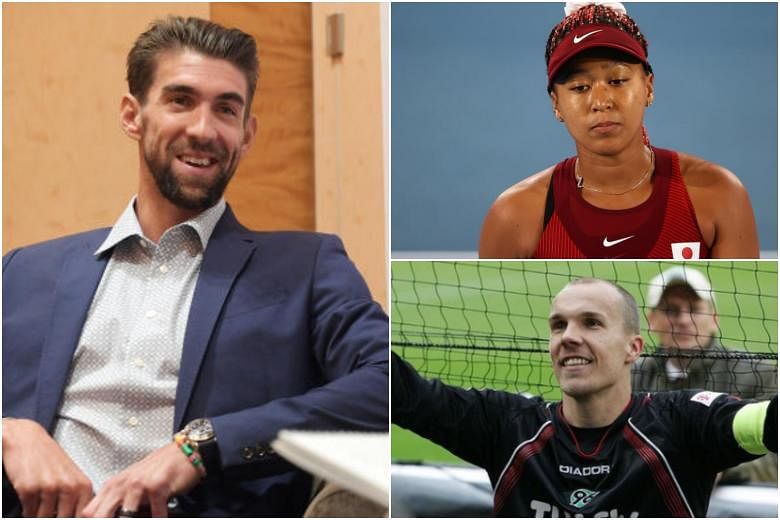American gymnast Simone Biles' dramatic withdrawal from the Olympics' all-around team final on mental health grounds on Tuesday (July 27) cast the spotlight on the issue in sport.
But athletes and mental health issues have long been sad bedfellows as these three examples show:
Michael Phelps, swimming, USA
The world's most decorated Olympian with 28 medals - 23 of them gold - was one of the first leading lights to speak up about mental health.
Phelps, who attended his first Olympics in 2000 and retired - for the second time - after Rio 2016, battled anxiety, depression and suicidal thoughts during his career and sought professional help.
In an interview with CNN in 2018, he said: "Really, after every Olympics I think I fell into a major state of depression."
He noticed a pattern of emotion "that just wasn't right" at "a certain time during every year," usually around the beginning of October or November, he said.
"I would say '04 was probably the first depression spell I went through."
He has been open with his struggles and has also become an advocate for mental health awareness such as through the Michael Phelps Foundation and by joining the board of Talkspace, an online mobile therapy company that provides access to therapists whenever needed.
He told Time Magazine: "For me to know there are a lot of people out there in the world who are struggling the same exact way I do still struggle and have struggled - I'm a human being. But I was so used to compartmentalising everything.
"Being an athlete you're supposed to be this strong person who doesn't have weaknesses, doesn't have any problems. No, that's wrong. I struggle through problems just like everybody else does. I wanted to open up and just talk about it. It is what makes me who I am."
Naomi Osaka, tennis, Japan
After beating Serena Williams to win her first Grand Slam title at the 2018 US Open, Osaka was hailed as one of the sport's rising stars. She won three more Grand Slam titles and became the first Asian player to be ranked No. 1 in singles.
In June, she made headlines for choosing to skip press conferences at the French Open, in order to protect her mental health. She said expecting players to answer questions after a loss amounted to "kicking a person while they're down" and objected to being asked questions "that bring doubt into our minds". "I'm just not going to subject myself to people that doubt me," she added.

She later withdrew from the tournament, though not before being fined by organisers, and there were mixed reactions to her decision.
Osaka, 23, later revealed that she has "suffered long bouts of depression" since the 2018 US Open and has "had a really hard time coping with that".
She highlighted that she is introverted and often wears headphones at tournaments as that "helps dull my social anxiety", adding that she is not a natural speaker and gets "huge waves of anxiety before I speak to the world's media".
Robert Enke, football, Germany
Enke was a German goalkeeper who started his senior career with hometown club Carl Zeiss Jena, before going on to play for some of Europe's biggest clubs, including the likes of Borussia Monchengladbach, Benfica and Barcelona.
However, his spell at Barcelona turned sour as he struggled to nail down regular football and had loan spells in Turkey and the Spanish second division. It was also during this period of time that he suffered from depression.
Enke seemed to have recovered after making a return back to Germany with Hannover in 2004, when he was voted German sports magazine Kicker's Bundesliga Goalkeeper of the Year for the 2005/2006 season. But he had to battle through a personal tragedy when his daughter died in 2006.
Still, he fought on and was named Goalkeeper of the Year again in the 2008/2009 season.
But depression caught up with Enke again and just a few months before the 2010 World Cup, he took his life in front of a train on Nov 10, 2009.
Enke, who was expected to be part of his country's World Cup squad, had amassed eight international caps for his country.

